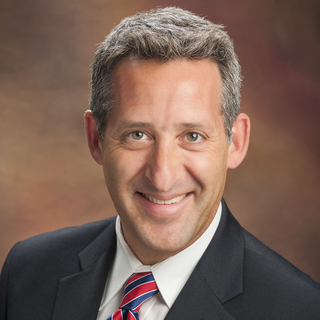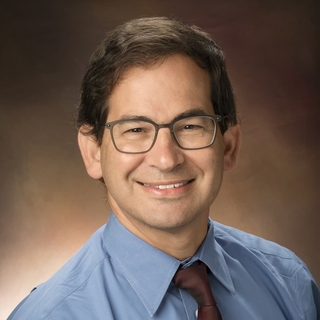FDA Approves First Drug for Friedreich’s Ataxia; CHOP a Leading Trial Site
The Food and Drug Administration (FDA) has approved omaveloxolone (brand name Skyclarys®) as the first treatment for Friedreich’s ataxia (FA). As part of the Friedreich’s Ataxia Center of Excellence, CHOP was a lead study site for the clinical trial that led to the treatment’s approval. The drug, manufactured by Reata Pharmaceuticals, is a once-a-day oral pill meant to improve neurological function and slow the progression of the disease.
“As the first approved drug for FA, this is a major event not only for FA but also for all ataxias and the rare disease community,” says David Lynch, MD, PhD, director of CHOP’s Friedreich’s Ataxia Program, the largest FA program in the country.
Children with Low-risk Thyroid Cancer Can Skip Radioactive Iodine

A retrospective cohort study from CHOP researchers provides the first evidence in pediatric patients to support the 2015 guidelines from the American Thyroid Association that recommends children should not get radioactive iodine (RAI) therapy when their differentiated thyroid cancer (DTC) is mostly confined to the thyroid.
The study team, led by Andrew J. Bauer, MD, director of the Pediatric Thyroid Center at CHOP, found that in a cohort of patients under the age of 19 with low-risk DTC who had undergone a total thyroidectomy at CHOP between 2010 and 2020, those who did not receive RAI therapy showed no decrease in the rate of remission compared with those who received it.
CHOP Neurologist Leads Effort to Develop First Diagnosis Guidelines for MOGAD
Brenda L. Banwell, MD, Chief of the Division of Neurology and Co-Director of the Neuroscience Center at CHOP, lead an international panel that has established new criteria for properly diagnosing myelin oligodendrocyte glycoprotein antibody-associated diseased (MOGAD), a neurological disorder that causes inflammation and potential damage of the brain, spinal cord, and optic nerves.
“While there is more awareness now than there was a decade ago, without international consensus criteria, there are many MOGAD patients who may not be properly diagnosed,” Banwell says. “We hope that better and earlier diagnosis can lead to more patients receiving appropriate treatments.”
The proposed guidelines, the first-ever for MOGAD, were recently published in The Lancet Neurology.
Clinical Trial Finds Antibody Treatment Improves EoE Symptoms and Pathology

A weekly dose of dupilumab, a monoclonal antibody, led to a reduction of symptoms and tissue improvement in young adults and adolescents with eosinophilic esophagitis (EoE), according to a study published in the New England Journal of Medicine. The study analyzed data from 2 phase 3 clinical trials and involved an international group of researchers, including those from CHOP.
Current treatments for EoE involve food elimination diets, proton-pump inhibitors, swallowed topical glucocorticoids, and, in some cases, esophageal dilation. However, anywhere from 30% to 40% of patients may not respond to first-line treatments, and some of the treatments have unwanted side effects.
“The results of this phase 3 trial give hope to patients and families who have historically had limited options to treat EoE,” says study co-author Jonathan Spergel, MD, PhD, Chief of CHOP’s Allergy Program. “This study shows that dupilumab is a good treatment option for patients with EoE and not only reduces symptoms but also targets the root cause of the disease.”
CHOP-led Study Shows COVID-19 Vaccine Appears Safe for Children with History of MIS-C

COVID-19 vaccination appears to be safe for children with a history of multisystem inflammatory syndrome in children (MIS-C), according to a multicenter study co-led by researchers at CHOP. The study, published in JAMA Network Open, found that patients with a history of MIS-C who received a vaccine at least 90 days after diagnosis reported no serious complications, with no incidence of myocarditis or recurrent MIS-C.
“We are very reassured by the results,” says Matthew Elias, MD, an attending cardiologist in CHOP’s Cardiac Center and first author of the study. “This safety data should be comforting to families and healthcare professionals when considering and recommending vaccination.”
FDA Approves First Drug for Friedreich’s Ataxia; CHOP a Leading Trial Site
The Food and Drug Administration (FDA) has approved omaveloxolone (brand name Skyclarys®) as the first treatment for Friedreich’s ataxia (FA). As part of the Friedreich’s Ataxia Center of Excellence, CHOP was a lead study site for the clinical trial that led to the treatment’s approval. The drug, manufactured by Reata Pharmaceuticals, is a once-a-day oral pill meant to improve neurological function and slow the progression of the disease.
“As the first approved drug for FA, this is a major event not only for FA but also for all ataxias and the rare disease community,” says David Lynch, MD, PhD, director of CHOP’s Friedreich’s Ataxia Program, the largest FA program in the country.
Children with Low-risk Thyroid Cancer Can Skip Radioactive Iodine

A retrospective cohort study from CHOP researchers provides the first evidence in pediatric patients to support the 2015 guidelines from the American Thyroid Association that recommends children should not get radioactive iodine (RAI) therapy when their differentiated thyroid cancer (DTC) is mostly confined to the thyroid.
The study team, led by Andrew J. Bauer, MD, director of the Pediatric Thyroid Center at CHOP, found that in a cohort of patients under the age of 19 with low-risk DTC who had undergone a total thyroidectomy at CHOP between 2010 and 2020, those who did not receive RAI therapy showed no decrease in the rate of remission compared with those who received it.
CHOP Neurologist Leads Effort to Develop First Diagnosis Guidelines for MOGAD
Brenda L. Banwell, MD, Chief of the Division of Neurology and Co-Director of the Neuroscience Center at CHOP, lead an international panel that has established new criteria for properly diagnosing myelin oligodendrocyte glycoprotein antibody-associated diseased (MOGAD), a neurological disorder that causes inflammation and potential damage of the brain, spinal cord, and optic nerves.
“While there is more awareness now than there was a decade ago, without international consensus criteria, there are many MOGAD patients who may not be properly diagnosed,” Banwell says. “We hope that better and earlier diagnosis can lead to more patients receiving appropriate treatments.”
The proposed guidelines, the first-ever for MOGAD, were recently published in The Lancet Neurology.
Clinical Trial Finds Antibody Treatment Improves EoE Symptoms and Pathology

A weekly dose of dupilumab, a monoclonal antibody, led to a reduction of symptoms and tissue improvement in young adults and adolescents with eosinophilic esophagitis (EoE), according to a study published in the New England Journal of Medicine. The study analyzed data from 2 phase 3 clinical trials and involved an international group of researchers, including those from CHOP.
Current treatments for EoE involve food elimination diets, proton-pump inhibitors, swallowed topical glucocorticoids, and, in some cases, esophageal dilation. However, anywhere from 30% to 40% of patients may not respond to first-line treatments, and some of the treatments have unwanted side effects.
“The results of this phase 3 trial give hope to patients and families who have historically had limited options to treat EoE,” says study co-author Jonathan Spergel, MD, PhD, Chief of CHOP’s Allergy Program. “This study shows that dupilumab is a good treatment option for patients with EoE and not only reduces symptoms but also targets the root cause of the disease.”
CHOP-led Study Shows COVID-19 Vaccine Appears Safe for Children with History of MIS-C

COVID-19 vaccination appears to be safe for children with a history of multisystem inflammatory syndrome in children (MIS-C), according to a multicenter study co-led by researchers at CHOP. The study, published in JAMA Network Open, found that patients with a history of MIS-C who received a vaccine at least 90 days after diagnosis reported no serious complications, with no incidence of myocarditis or recurrent MIS-C.
“We are very reassured by the results,” says Matthew Elias, MD, an attending cardiologist in CHOP’s Cardiac Center and first author of the study. “This safety data should be comforting to families and healthcare professionals when considering and recommending vaccination.”